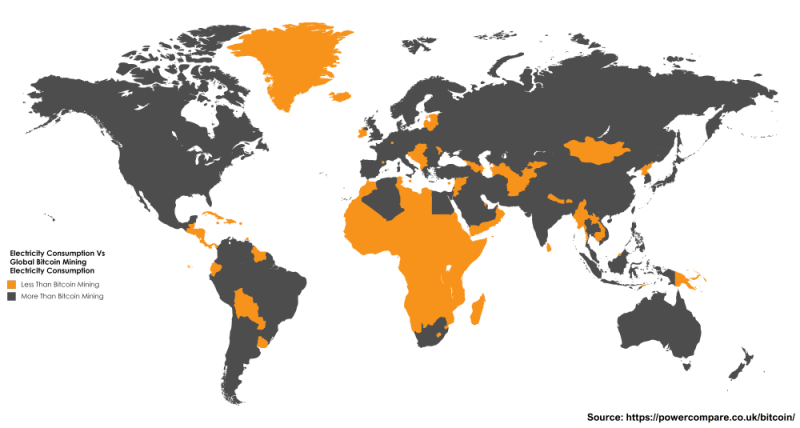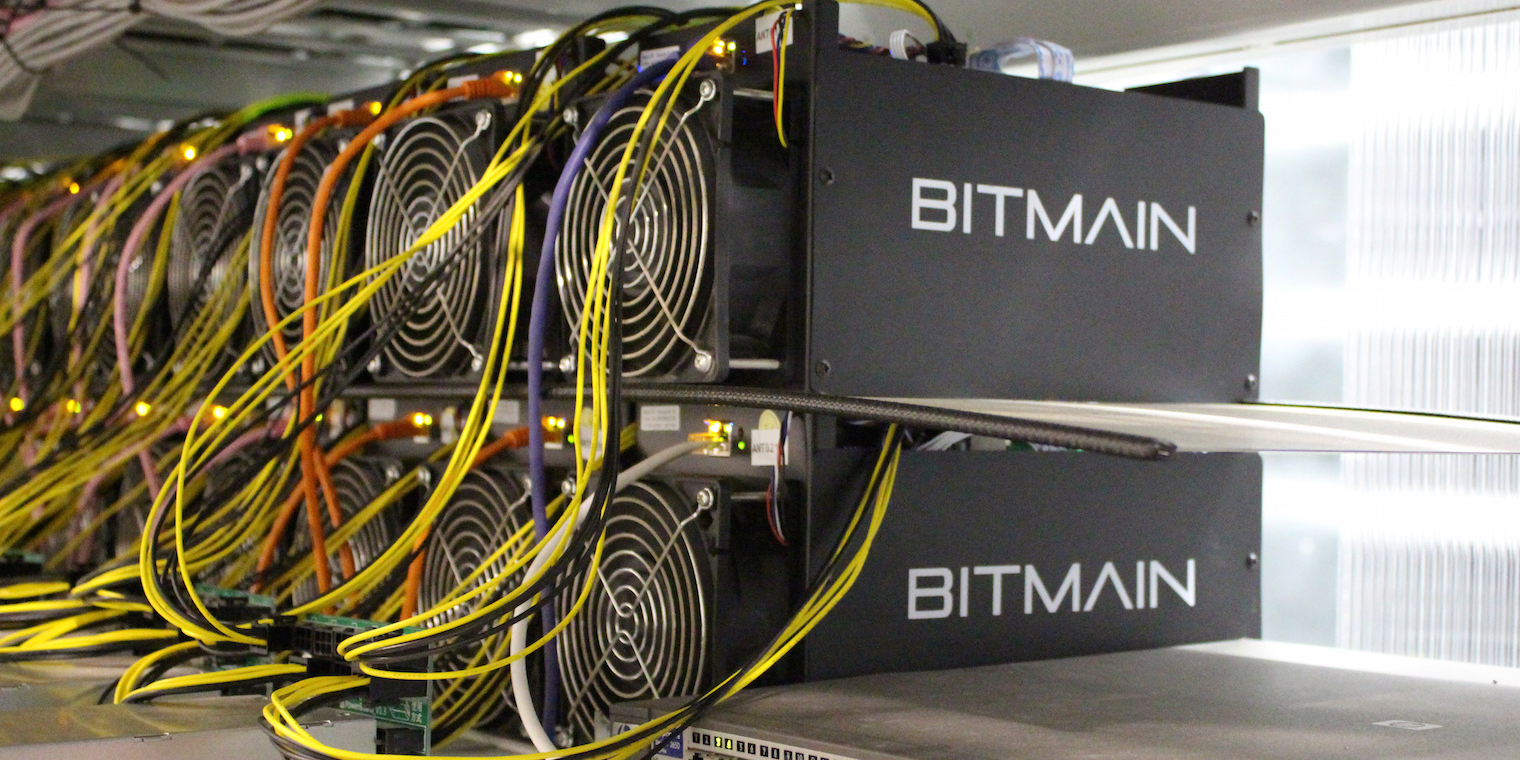- New bitcoin is created by computers solving complex cryptographic problems, a process known as “mining.”
- PowerCompare.co.uk says the amount of electricity used by computers mining bitcoin so far this year eclipses the annual usage of countries like Ireland and most African countries.
- Bitcoin’s electricity usage is coming under increasing scrutiny.
LONDON – The amount of energy used by computers “mining” bitcoin so far this year is greater than the annual usage of almost 160 countries, according to new research.
Research by energy tariff comparison service PowerCompare.co.uk shows that the amount of energy expended mining bitcoin globally has already exceeded the amount used on average by Ireland and most African nations.
PowerCompare.co.uk used stats from Bitcoin and cryptocurrency data provider Digiconomist, which estimates that 29.05 TWh of electricity was used to mine bitcoin, compared to an estimated 25 TWh of electricity per year used by Ireland.
You can see a full list of the 159 countries whose energy usage is eclipsed by bitcoin here or see it visualised below (the orange countries are those that use less electricity than bitcoin mining):
Bitcoin is a cryptocurrency that was created in 2009. It is designed to not be controlled by any one party and is underpinned by a system called blockchain, which records transactions.
To ensure transactions are not falsified or records of ownership changed, participants of the bitcoin network must sign off on transactions in "blocks" (hence, blockchain).
To incentivize people to do this work, which involves computers completing complex cryptographic problems, people who verify blocks are rewarded with freshly created bitcoin. Hence, this process is known as bitcoin "mining."
However, the creators of bitcoin designed the system so there would only ever be a limited supply of bitcoins to be mined (a maximum of 21 million). To ensure the longevity of the system, the cryptographic problems involved in the mining get progressively harder, meaning it takes longer to earn them.
Miners are turning to more powerful computers to complete these tasks and earn bitcoin. As a result, mining (and on the flipside, bitcoin transactions) are sucking up greater and greater amounts of electricity. Bitcoin transactions now use so much energy that the electricity used for a single trade could power a home for almost a whole month, according to Dutch bank ING.
The bulk of Bitcoin "mining" is done in China, where energy costs are comparatively cheaper than in places like the UK or US.
"The top six biggest mining pools from Antpool to BTCC are all largely based in China," Mati Greenspan, an analyst with trading platform eToro, said in an email earlier this month. "Some rough estimates put China's hashpower at more than 80% of the total network."
However, there is growing concern about what the environmental impact of all this electric usage could be. Most of the electricity generated in China comes from CO2 emitting fossil fuels. Greenspan said: "We need to be mindful of how that energy is created."
You can see live data on the mining pools that are currently active at Blockchain.info.

